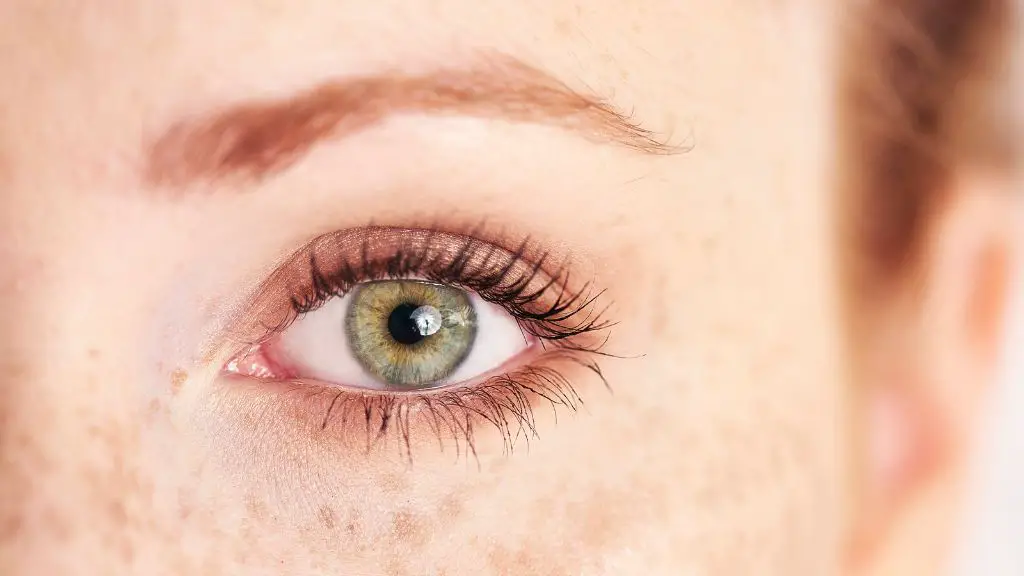Green eyes are one of the rarest eye colors in the world. Only about 2% of the global population has green eyes. But are green eyes linked to any health concerns? Here’s a quick look at some of the key points:
The genetics behind green eyes
Green eyes are caused by low levels of melanin pigment in the iris. Melanin is the pigment that gives eyes their color. The more melanin present, the darker the eye color.
Green eyes are most commonly found in people of Northern European descent. This is because green eyes are a recessive genetic trait. For someone to have green eyes, they need to inherit a green eye gene from both parents. If someone inherits a brown eye gene from one parent and a green eye gene from the other, their eye color will be brown rather than green.
The main gene responsible for green eyes is the OCA2 gene located on chromosome 15. Certain variations in this gene reduce the amount of melanin produced, leading to lighter eye colors like green, blue, and gray.
Are there any health risks associated with green eyes?
In general, green eyes do not pose any health risks on their own. Having green eyes will not make someone more prone to eye diseases or other health issues compared to other eye colors.
However, there are a few potential considerations for people with green eyes:
– Increased sun sensitivity. The lower melanin levels in green eyes mean the iris may absorb more damaging UV radiation from sunlight. This could increase risk of eye conditions like cataracts. Wearing UV-blocking sunglasses can help protect green eyes.
– Higher risk of macular degeneration. Some research suggests green-eyed individuals may have a slightly elevated risk of developing age-related macular degeneration. This can potentially lead to vision loss.
– Difficulty with glare. The translucent nature of light green eyes may make them more sensitive to glare and bright lights. This can lead to eye strain and headaches.
– Susceptibility to eye freckles. Green-eyed people can develop benign brown spots on the iris called iris freckles. These spots are harmless but may multiply over time.
Overall though, these risks are quite small. Green eyes themselves do not indicate any underlying health problems.
Do green eyes affect vision quality?
Green eyes do not affect visual acuity or the sharpness of vision. However, some research indicates green-eyed people may have slight differences in their vision capabilities compared to other eye colors:
– Enhanced light sensitivity. The lower melanin in green eyes may improve light absorption. This can allow more light to enter the eye and improve vision in low light conditions.
– Reduced sun glare recovery. One study found green-eyed participants took longer to recover from the effects of glare. This may increase temporary vision difficulties in bright sun.
– Potential red-green color blindness. Green-eyed people are theoretically more likely to be red-green color blind. However, this form of color blindness is still extremely rare in all populations.
– Possible blue light sensitivity. With less pigment, green eyes may transmit more blue light. This could theoretically increase eye strain or sleep issues linked to blue light exposure.
Overall, these differences are quite subtle and do not significantly impact vision quality. Green eyes can see just as clearly as darker eye colors like brown and black.
Do green-eyed people need special eye care?
Green-eyed individuals do not require specialized medical treatment solely based on their eye color. However, there are a few tips that can help keep green eyes healthy:
– Get regular eye exams. Seeing an optometrist or ophthalmologist once a year helps detect any potential issues early.
– Wear UV blocking sunglasses outside. Quality sunglasses can reduce UV exposure that may be more damaging to light eyes.
– Use lubricating drops if prone to dry eyes. The drops can soothe eye irritation caused by environmental factors.
– Take breaks when looking at digital screens. Blinking frequently and looking away from screens every 20 minutes reduces eye strain.
– Maintain a nutrient-rich diet. Foods containing eye healthy antioxidants like lutein, zeaxanthin, and vitamins C and E may help prevent macular issues.
– Quit smoking. Smoking raises risks of cataracts, macular degeneration, and other eye problems for all eye colors.
With good eye care habits, people with green eyes can keep their vision healthy and clear throughout life. Their eye color does not necessitate significant changes to standard eye health practices.
Are green eyes linked to any health benefits?
A few studies have theorized certain health advantages associated with green eyes:
– Lower melanoma risk. The melanin pigment in eyes may correlate to skin melanin levels. Some research indicates fair-eyed individuals have a lower melanoma risk.
– Increased alcohol tolerance. A 2014 study found lighter eyed people were less impaired by alcohol. Researchers theorized this was linked to low melanin levels.
– Improved vision in low light. The light transmission properties of green eyes may give them better vision in dim conditions.
– Youthful appearance. The bright coloration of green eyes can create an impression of vibrance and youth.
However, more research is needed to determine if these speculated benefits hold true. Eye color itself does not significantly impact health or longevity. A person’s overall lifestyle and genetics more directly influence their well-being.
Conclusion
Green eyes are simply the result of lowered melanin pigment in the iris. They do not cause any medical issues or negatively impact vision. While green-eyed individuals may have slightly heightened sensitivity to UV light, glare, and blue light, these effects are modest. With healthy habits like wearing sunglasses and getting regular eye exams, green-eyed people can have excellent eye health and vision. Their vibrant eye color gives them a unique appearance without impacting their overall well-being.


